Leave No Trace Ethics: Explained
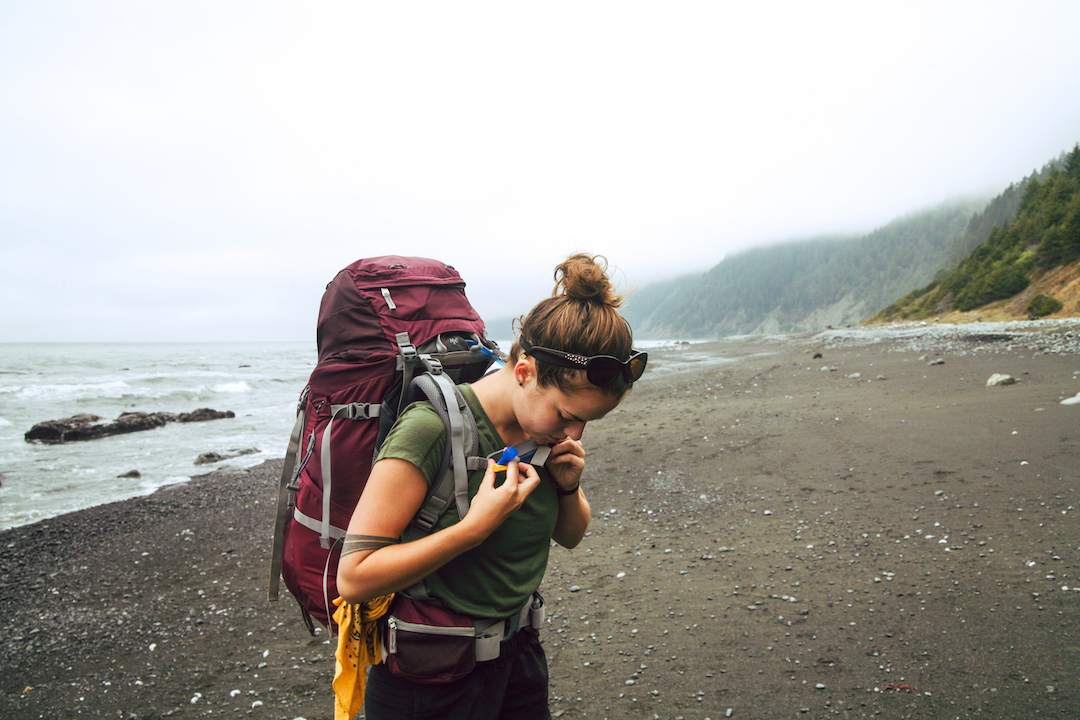
Leave No Trace Ethics Explained
By Miranda Leconte
If you’re anything like me, you started your love affair with the environment not knowing at all how to care for it. Having respect for our earth isn’t just about picking up garbage and calling it a day, but taking time to study the intricacies of nature. Learning these things require patience, effort, and the willingness to learn.
After working for the U.S. Forest Service for over three years, I’d estimate that 9 out of 10 backpackers that I contact in the wilderness don’t know the first principle of Leave No Trace. Plenty of people have heard about “Leave No Trace” or “LNT” before, but not everyone knows that there’s a lot more to it than meets the eye. In fact, there’s seven principles to the set of ethics!
I know it seems like a lot of work to memorize these suckers, but I promise it’s worth it. You’ll become so much more knowledgeable about your surroundings, take enormous pride in your responsibility to the outdoors, and end up being a great resource for people to come to for how to respect wild lands. That’s pretty much what rangers are paid to do: know, practice, reinforce, and teach these ethics in order to protect the environment around us. Here’s a quick overview of the infamous LNT principles:
1. Plan Ahead & Prepare
It’s incredibly important to check rules and regulations before you go camping or hiking somewhere, especially if it’s in a protected space like a Wilderness Area or Wildlife Sanctuary. I’ve come across people who go out for a day hike with no water because they assumed that a water fountain would be available eight miles into the wilderness. I’ve had to give a group of backpackers a bunch of garbage bags so they could protect their gear since they hadn’t prepared for the rainstorm that was approaching. Ensure that you know the weather forecast backward and forward, pack the right gear for what you’ll be facing, and know what situations to expect.
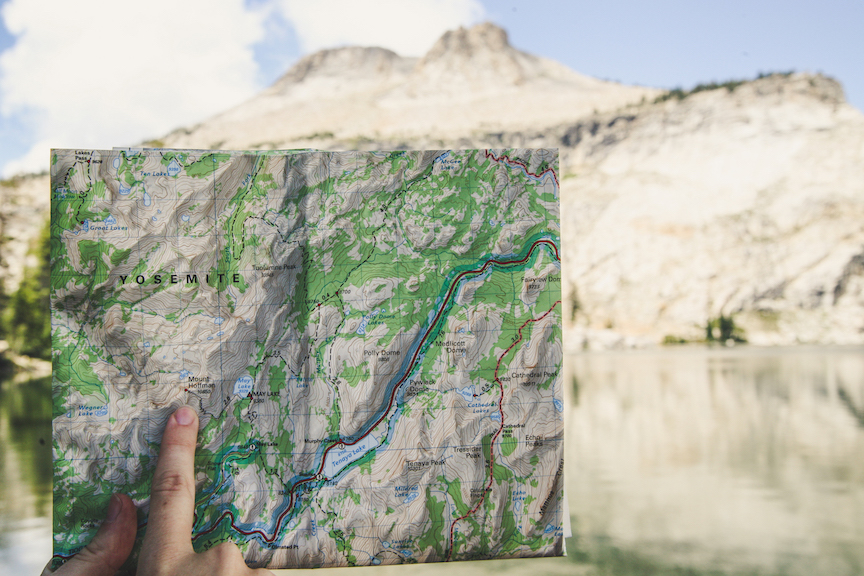
2. Travel & Camp on Durable Surfaces
In order to protect riparian areas, you’ve got to camp at least 200 feet from water. I think my biggest pet peeve is seeing someone camp next to water. Pretty much everyone wants to camp next to water sources, and it drives rangers NUTS! It’s crucial to let these fragile aquatic communities have their alone time, so please, take a step back and respect your surroundings! The best views are further back from the water, anyway.
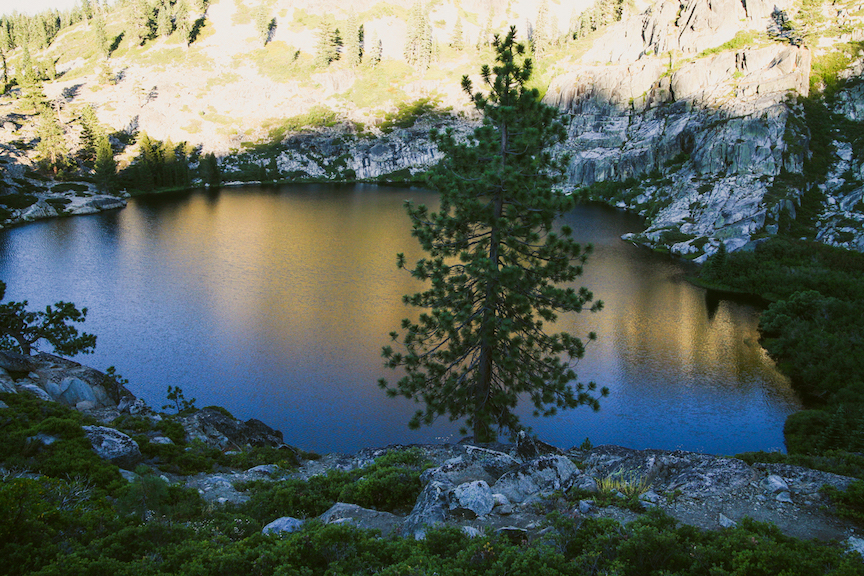
3. Dispose of Waste Properly
This topic seems to be the most ignored topic of all, and for good reason: nobody wants to talk about how they manage their waste. Do your research- does the area you’re in require wag bags? Does it require burying waste 6” deep? Does it require that you pack out toilet paper? Make sure to take care of your business at least 200 feet from water for obvious reasons. Also, do yourself a favor: bring a shovel or a trowel (you’ll need it). Additionally, pack out ALL of your garbage. I find way too much foil and other miscellaneous garbage left behind in campfire rings and it’s not cool. I’ve also seen plenty of groups cook their meals right next to lakes and dump their cooking oil straight in the water, or on the rocks around the water. This depletes water quality, so please take a few steps back!
4. Leave What You Find
Remember the saying “take nothing but memories, leave nothing but footprints?” Mostly everyone can find something they love when they’re out in nature, but the tricky part is leaving it alone and admiring it from afar. I often have to ask hikers to put down the wildflowers they had picked, leave behind the sticks they took, and return the pine cones they had grabbed for decor in their homes. These things have a place in nature, so please let them decompose and replenish their ecosystem.
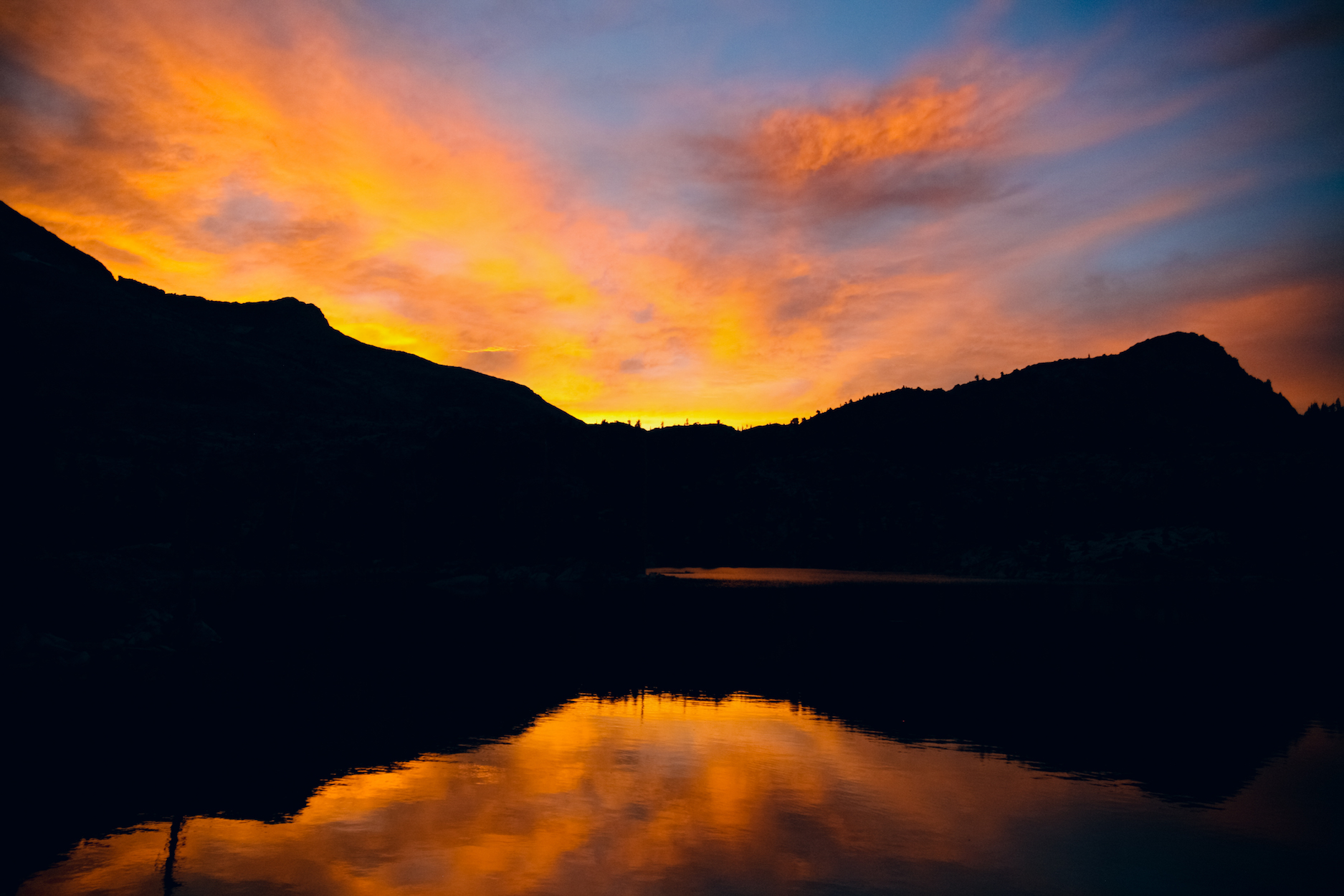
5. Minimize Campfire Impacts
Campfires can cause some serious damage to the earth, so try and use a camp stove whenever possible. Try not to build your campfire too big, and absolutely make sure that it’s cool to the touch before you leave your site. Make sure to check campfire regulations, too! I can’t tell you how many times I’ve come across unattended, red-hot campfire rings.
Long story alert: One backpacking couple had gone into the wilderness (without a permit), camped ten feet away from a lake, and built a campfire just five feet from the water’s edge. Campfires had been illegal for over 20 years in this area, but I realized the only way to get through to these people was to educate them, not fine them. The guy told me he worked for a large outdoor retailer and that he knew all about LNT. I was pretty confused because he obviously had no idea how to care for the environment… but we continued our conversation and they helped me extinguish their campfire. The ashes from the fire blew straight into the lake, thus depleting the water quality. We moved their camp back 100 feet and as you can imagine, they were really feeling bad about their poor decisions at this point. I mentioned that I could have written them a $1,200 ticket for camping too close to water, camping without a permit, having an illegal campfire, and having that campfire so close to water, but I wasn’t going to because they were so cool about fixing their mistakes. They were grateful and receptive to my teachings, so I went on my way patrolling the wilderness. A few days later, I checked the hashtag “#desolationwilderness” and saw they had posted photos of their illegal campsite and mentioned an “annoying ranger.” In hindsight, maybe I should have fined them? I don’t know, you be the judge.
6. Respect Wildlife
You can do your part in protecting native wildlife by not giving them a reason to approach humans or campsites. Keep your food to yourselves and bring some binoculars to observe wildlife from a safe distance. If you’re enjoying the outdoors with a dog, make sure that your pup is within your view at all times so that he or she doesn’t spook the native animals!
7. Be Considerate of Other Visitors
The golden rule comes in handy when remembering how to approach this ethic: treat others how you would want to be treated. Be courteous on the trail, keep voices and music down, and try your best to give others the best experience they can have when enjoying the backcountry. I usually ask hikers with speakers attached to their backpacks to shut off their speakers and use earphones instead so that they don’t affect anyone else’s tranquil wilderness experience. This generally works pretty well and they understand immediately that they need to keep it down.

After you’re aware of these principles, it’s hard to forget them. Just keep practicing and utilizing your knowledge on respecting the environment whenever you can! When I go backpacking, camping, or hiking with other people on or off-duty I make sure to let them know why I’m doing the things I’m doing so that they may catch on and do the same.
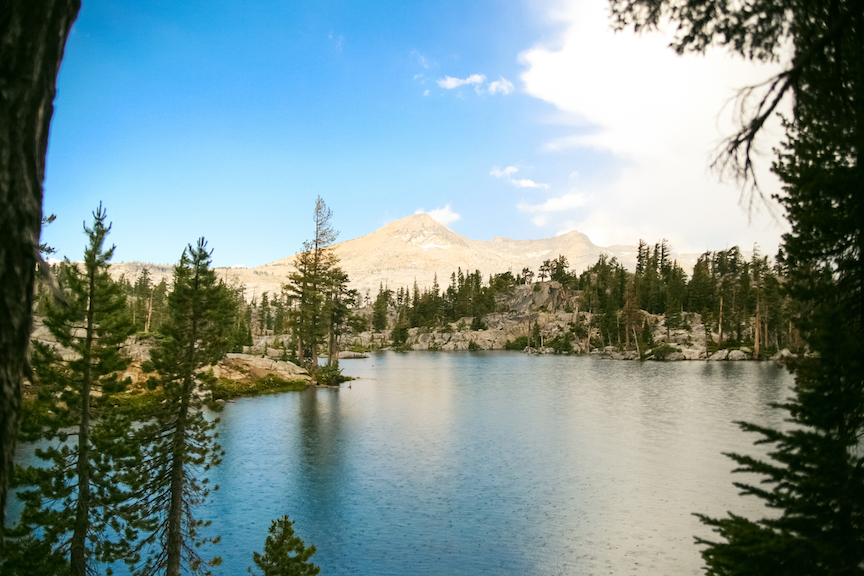
There’s plenty of resources out there to learn more about how to protect our precious lands. Hopefully after reading more about Leave No Trace ethics, your fire for the environment has been sparked and they becomes second nature to you! To most rangers, Leave No Trace is a set of guidelines we try to follow in every aspect of our lives. Your duty (should you choose to accept it) is to take what you’ve learned, keep learning more, and keep being a great steward of our wild places!
Learn more about Leave No Trace Principles through lnt.org->
Photos by Miranda Leconte.
Miranda Leconte is an environmentalist, conservationist, and former USFS wilderness ranger. Learn more through her portfolio and by following along on Instagram.
Don’t put nails or huge stakes into trees for tarps. If you must leave your glass beer bottles, why the ___ do you have to shatter them? Ditto with cigarette butts. Why do you need to abuse trees with your machete or axe? Hammock campers, make sure the trees you hang on can handle your weight x2.
And no, nobody GAF that you were wherever by writing or carving your presence on a tree, picnic table, or rock.
It is interesting that you talk about these rules and don’t acknowledge the Forest Service responsibility in the public disregard of them. Recently the F.S. has closed roads without marking them as closed and fined folks using them. The off road maps they issue are outdated and incomplete. The National Forests and Wilderness Areas are being inundated with folks encouraged by the F.S. so they can increase their budgets. National ads are aired daily to encourage visits. Visits which are not being well handled now. Decibel levels of generators and off hi way vehicles are not regulated despite studies citing the negative effect on wildlife and visitors alike. You mentioned telling folks to turn off their speakers, I respectfully suggest you talk to your superiors about regulating the decibel levels of equipment used in recreating in our forests. I commend you on your relating to folks the reasons behind LNT. Education will only work if folks are willing to listen. Unfortunately many are not and should be fined, not excused. I respect the job you are trying to do and wish you well. Thank you !
I think your right most folks have no idea what LTN entails. To know and not to do is not to know. You have good judgement when it comes to people, I bet they will never forget what you taught them, Even if they think of you as a meany on social media. TD Jakes talks a whole hour about living with criticism. “People who draw attention will draw criticism. The only way to avoid all criticism is to do nothing and then be ignored. But that’s not you is it”?-TD-Jakes